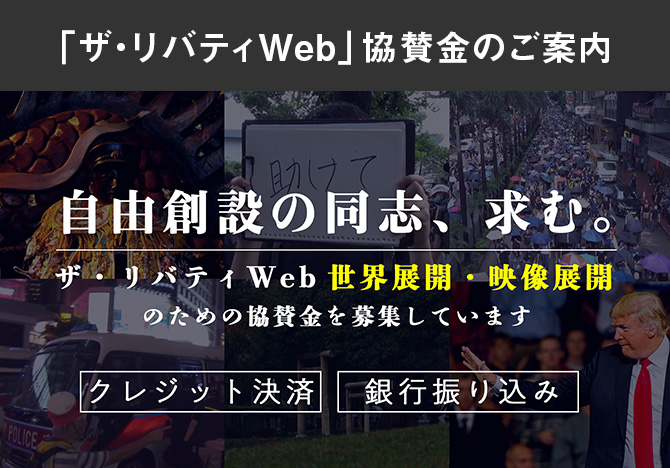Photo by Aye Chan
This is the interview with Prof.Aye Chan on his article “Burma’s Military Regime and Asia’s New “Cold War.” at The Liberty Magazine (2010, Dec).
 |
Aye Chan is a historian and professor at Kanda University of International Studies Japan. After studying at Kyoto University, Ph.D in history of Burma, .he was detained in Burma’s jail for 7 years from 1990 to 1997 for pro-democracy movement. Aung San Suu Kyi, Burma’s Nobel Peace laureate who is currently under house arrest, was also a researcher at Kyoto University during the same period. |
Q: Nobel Peace Prize was awarded to a Chinese human rights activist this year (Oct.8, 2010). China has been taking aggressive stances on the territorial issues with ASEAN nations, and Japan recently on Senkaku islands. But the prize gave a clear message to Chinese government that the world does not stand for China, and would never give in. Tell us what you think.
I. The Norwegian Nobel Prize Committee is an independent institution. However, it has been well aware of the peoples who are struggling for peace and human rights over the world. The committee always responds the quest of different peoples in the world for democracy and human rights. Awarding Nobel Price to Liu Xiao Bo, the Chinese Human Rights activist signifies the support of international community than the attitude of Norwegian Prize Committee. China is one of the five permanent members of United Nations Security Council. The International Bill of Human Rights is part of International Covenant on Civil and Political Rights of 1966. A Permanent Member of Security Council, wielding Veto Power is obviously taking no care of the U.N. Covenant. The Burmese military regime is following the Chinese way.
Q: On your article, we learn the Alfred Mahan's theory affecting international politics.
Geo-political theories may become key factor for the national security or international security on any nations. In other word, Diplomacy depends on geo-political tactics in the 21st century?
II. It is clear that geopolitical factors are important for the national security and the spread of a country’s influence on its neighboring countries. Alfred Thayer Mahan pointed out the naval power to command the sea was the key to power in foreign policy. Since the second half of nineteenth century the United States, Japan and European Colonial Powers were influenced by this theory. The theory has not yet been obsolete in the twenty-first century. We in the early twenty-first century is going to witness the race of naval power in the seas. China seems to be preparing for a race of naval power with the United States in the Pacific and with India in the Indian Ocean.
Q: It is very interesting to see that China has ambition to achieve the combination of Ming(SeaPower) and Yuan(Land Power) Dynasty in the 21 century. Tell us what you think.
III. Sino centrism (中華思想) still plays an important role in Chinese Foreign Policy. In the dynastic eras, invasion or demanding submission was the tactics. In the twenty-first century this strategy is out of question and Beijing began to use “Soft Power Policy.” Although the Chinese would not be able to put all the areas of Eurasia that the Mongol Army invaded, they want to maintain as much as they can. Beijing refused to recognize the McMahon Line that demarcated boundary between British India and China under Ching (Manchu) dynasty. It shows their intension to extend their landmass empire. The Ming Dynasty established sea routes that were used for trade with Japan, South and Southeast Asia. Beijing might be dreaming combination of these two phenomena.
Q: You wrote: An Axis of evil between North Korea and Burma. But this may be extended to Pakistan and Iran. And China plays a pivotal role on this Evil Empire.
IV. An axis of Evil between Burma and North Korea has been established. However there are cultural and religious obstacles to extend it to Iran and Pakistan under Beijing’s sponsorship. These two Muslim countries will exist as China’s close allies for some decades.
Q: And finally, you told me before very interesting story: Whether people across the planet in the 21st century would enjoy free world, or live under authoritarian system depends on how we act today against China in particular. This is what you want to tell us on this article?
V. Samuel Huntington predicted that the twenty-first century would be the “Age of Colliding Civilizations.” That is coming true. That can be interpreted that there will be collision of Democracy and Authoritarianism. China denounced the Nobel Price Committee when Dalai Lama was awarded Nobel peace price in 1989. That spiritual leader has been advocating peace and freedom of religion in Tibet. Now they harshly criticized the committee again for awarding Liu. Beijing is still standing against democracy and human rights. In this case we should not consider much about the relations between the governments of developing countries and China. The peoples of these countries are not ignorant as their dictators think. In the age of electronic communications the liberalism spreads as fast as forest fire. Their struggle for freedom will win. We have to wait though.

![Burma’s Military Regime and the Asian Cold War [2]INTERVIEW Burma’s Military Regime and the Asian Cold War [2]INTERVIEW](https://media.the-liberty.com/images/20200826/8617fd38-ead5-4e95-ae7.2e16d0ba.fill-660x370.format-jpeg.jpg)
























